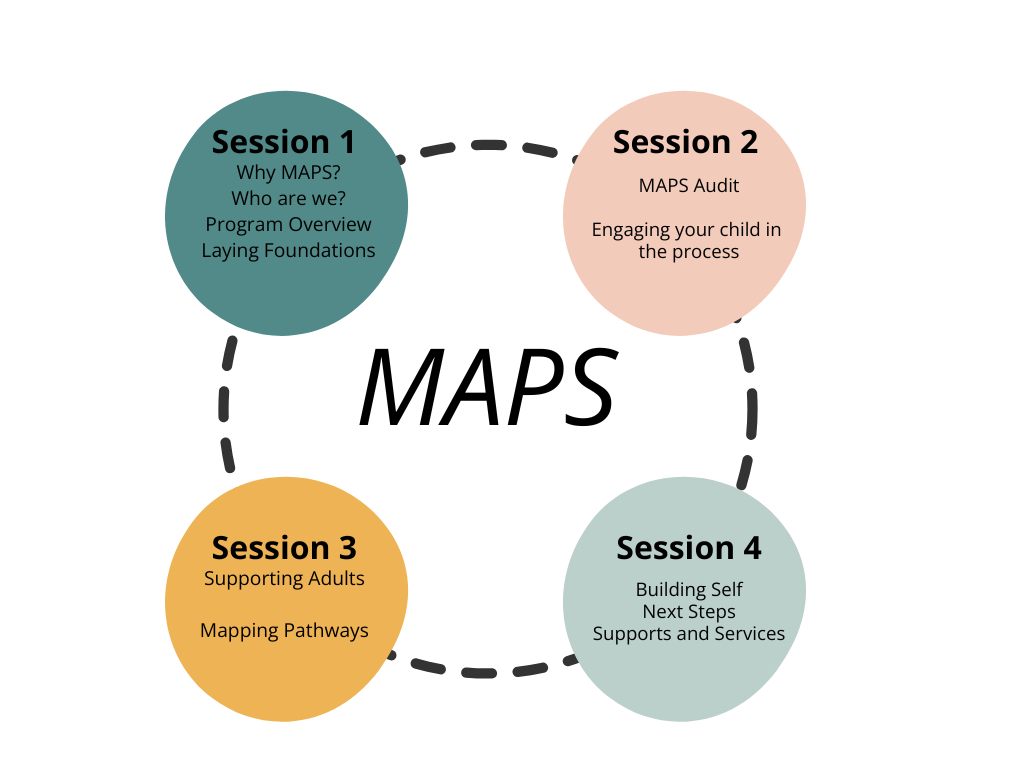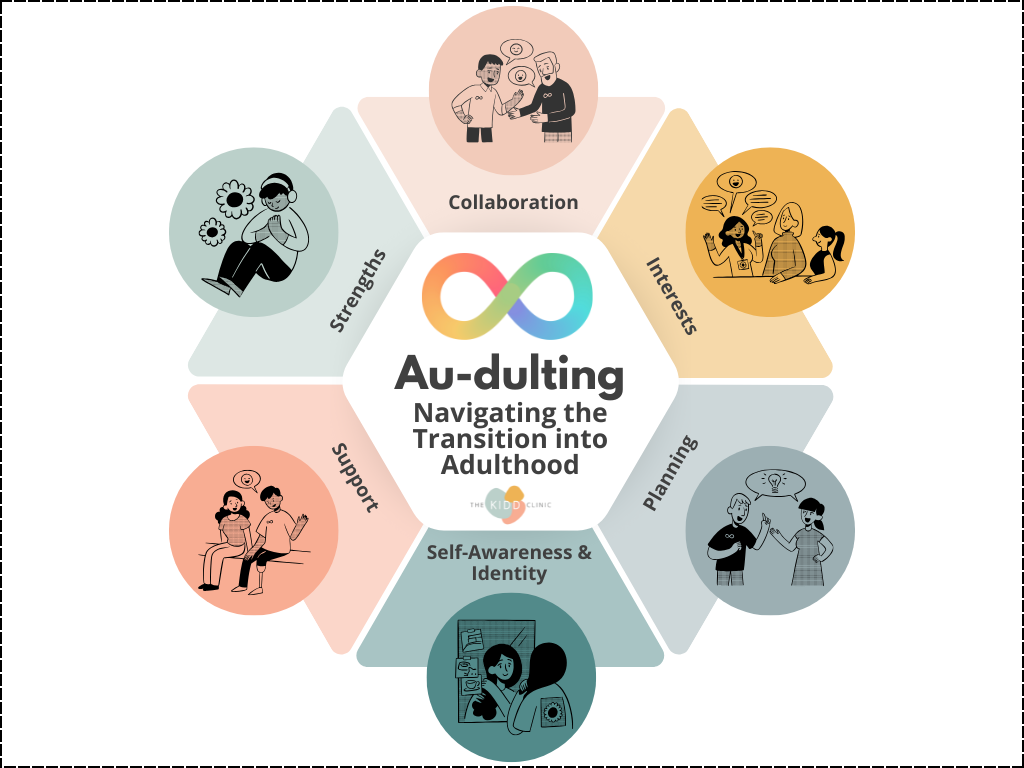Join us for the 4 week online MAPS Parent program - Mapping Autistic pathways successfully!
Wednesday 12th, 19th, 26th February, 5th March 9.30am -11.15am AWST
About MAPS
Parents and school staff often ask me, “When is the best time to start planning for the transition from high school to adulthood?"
This important transition is best initiated by Year 9 or 10 of high school, depending on the young person's developmental stage however it is never too early or late! While a collaborative process is ideal (e.g., involvement of school staff, the young person and family), training around this process can initially begin with parents.
I created the Mapping Autistic Pathways Successfully (MAPS) parent program after observing the transition challenges and needs post-high school for Autistic and PDA young people. Parents often felt unsure as to how to best support their child in planning for post-school options.

The MAPS parent program focuses on helping parents understand their child’s neurotype, strengths, interests, values, and utilise MAPS tools to maximise participation in high school, higher education, employment, and independent living for Autistic adolescents or young adults.
To support the transition to adulthood, individualised approaches are the foundation of the MAPS approach, with the aim of building the foundations for a positive and meaningful adult life.

What do we learn in MAPS?
The MAPS program will be presented via four online sessions providing information on the following topics from a neurodiversity-affirming lens:
Weeks 1-4
- How do I begin supporting my child to prepare for post-school life?
- Strategies and solutions for involving school staff and/ or other supporting adults
- Ways to engage your adolescent in the process - exploring options, reducing uncertainty and increasing decision making
- You have a child with a PDA profile? Creative and authentic ways to support their journey into adulting
- Elements of the MAPS program including practical templates to work though each domain
- Thriving in your role as parent and supporter
- Connecting with post-school services - what are the options?
- Hearing from Autistic young adults - what helped?




